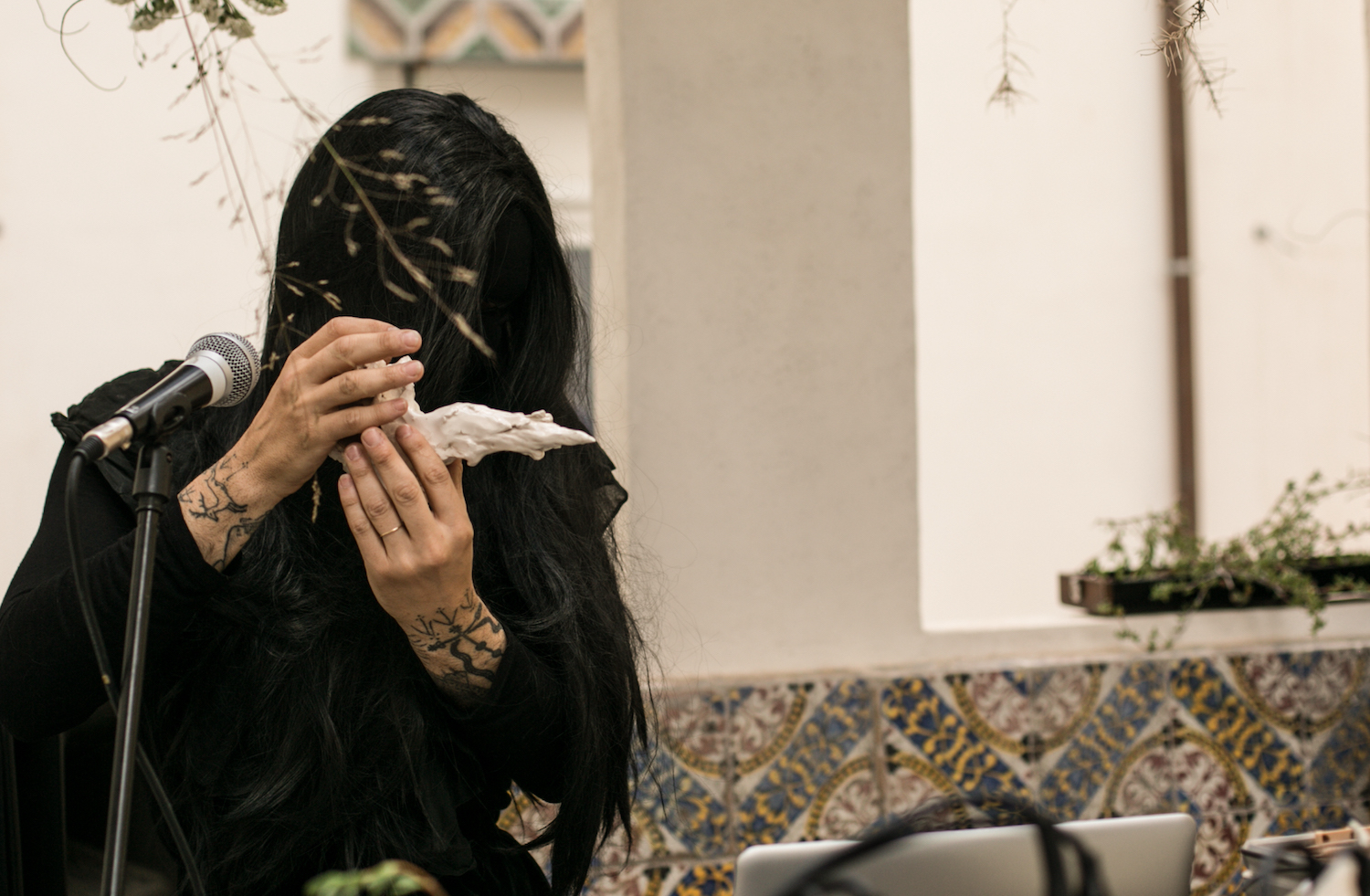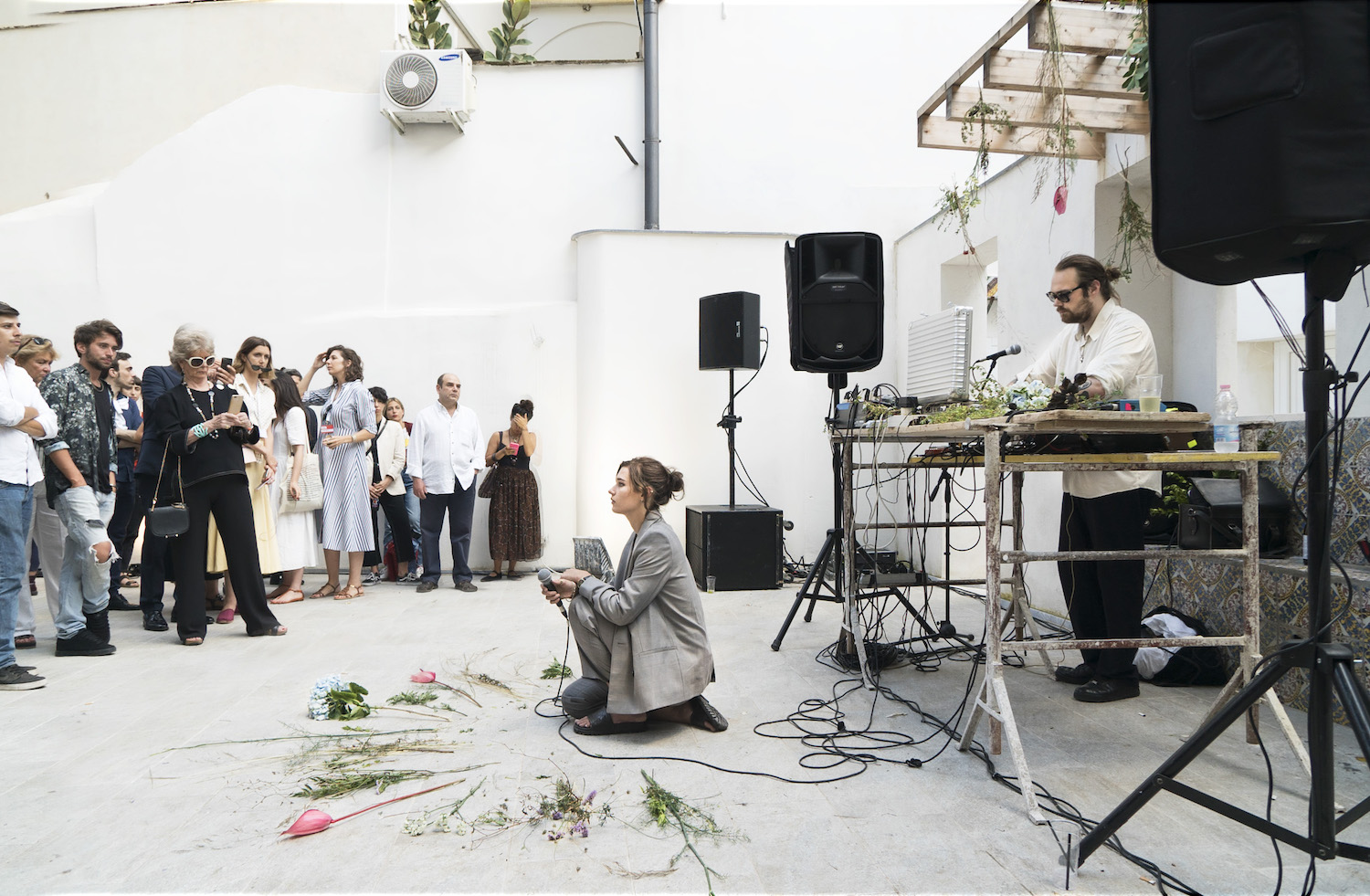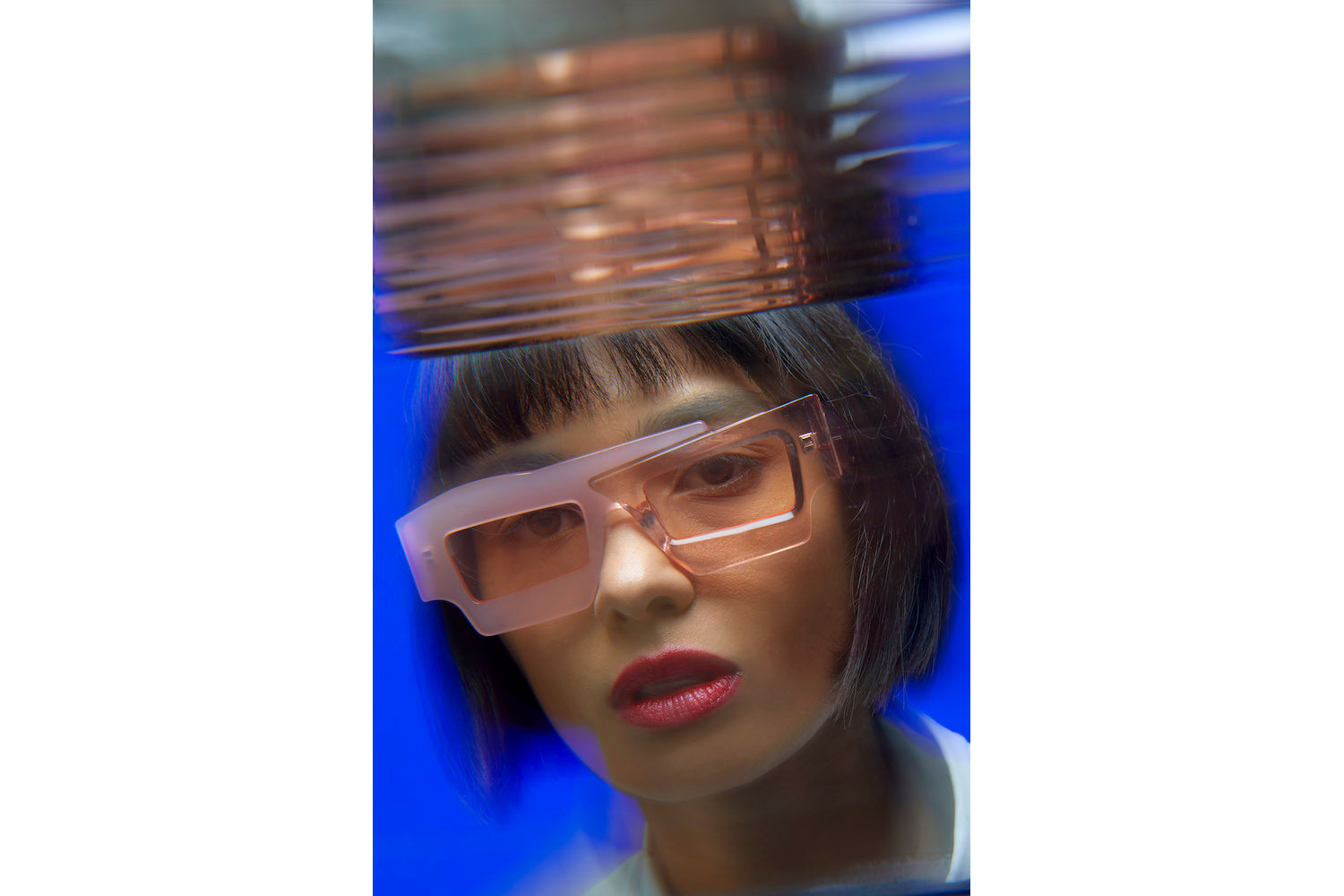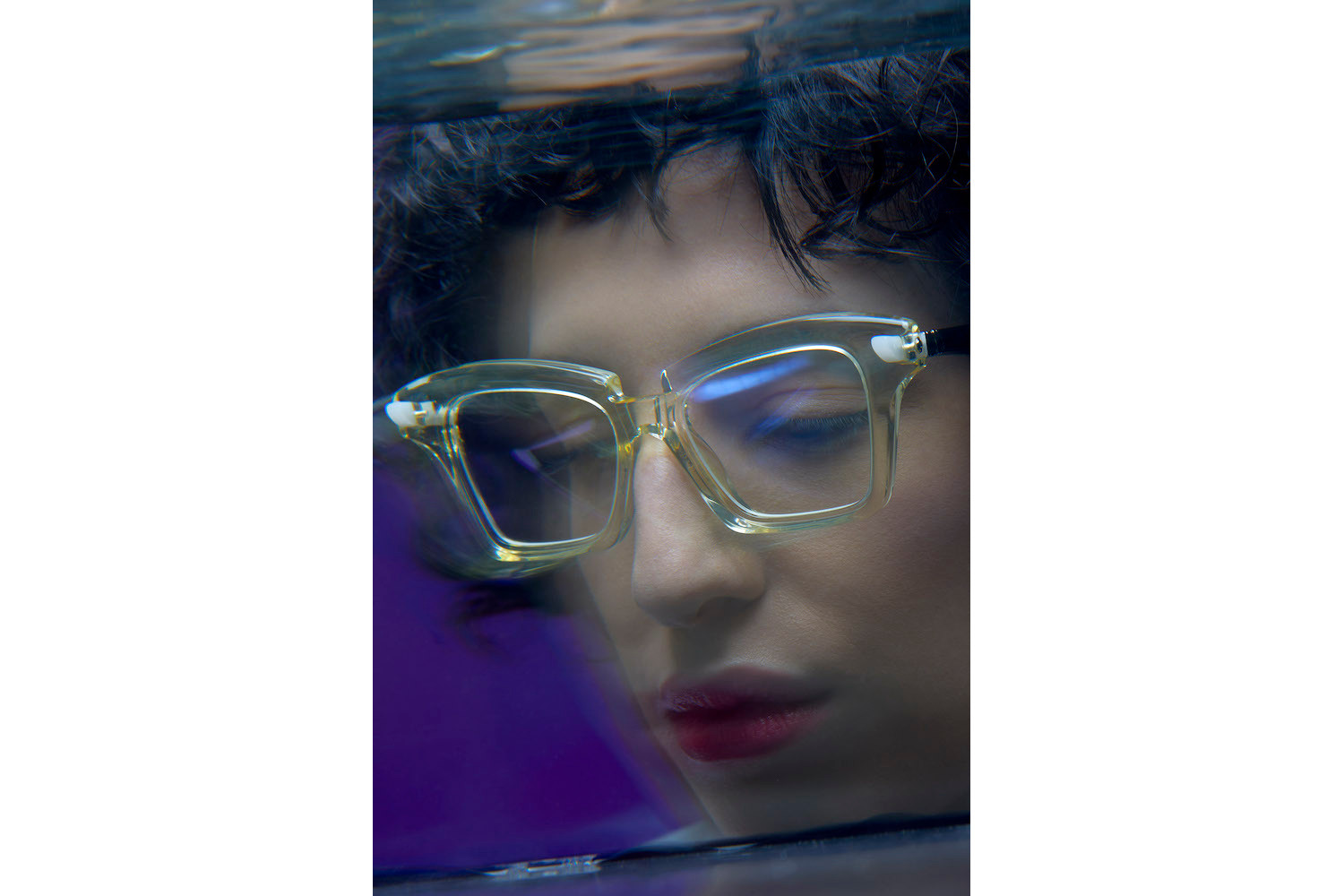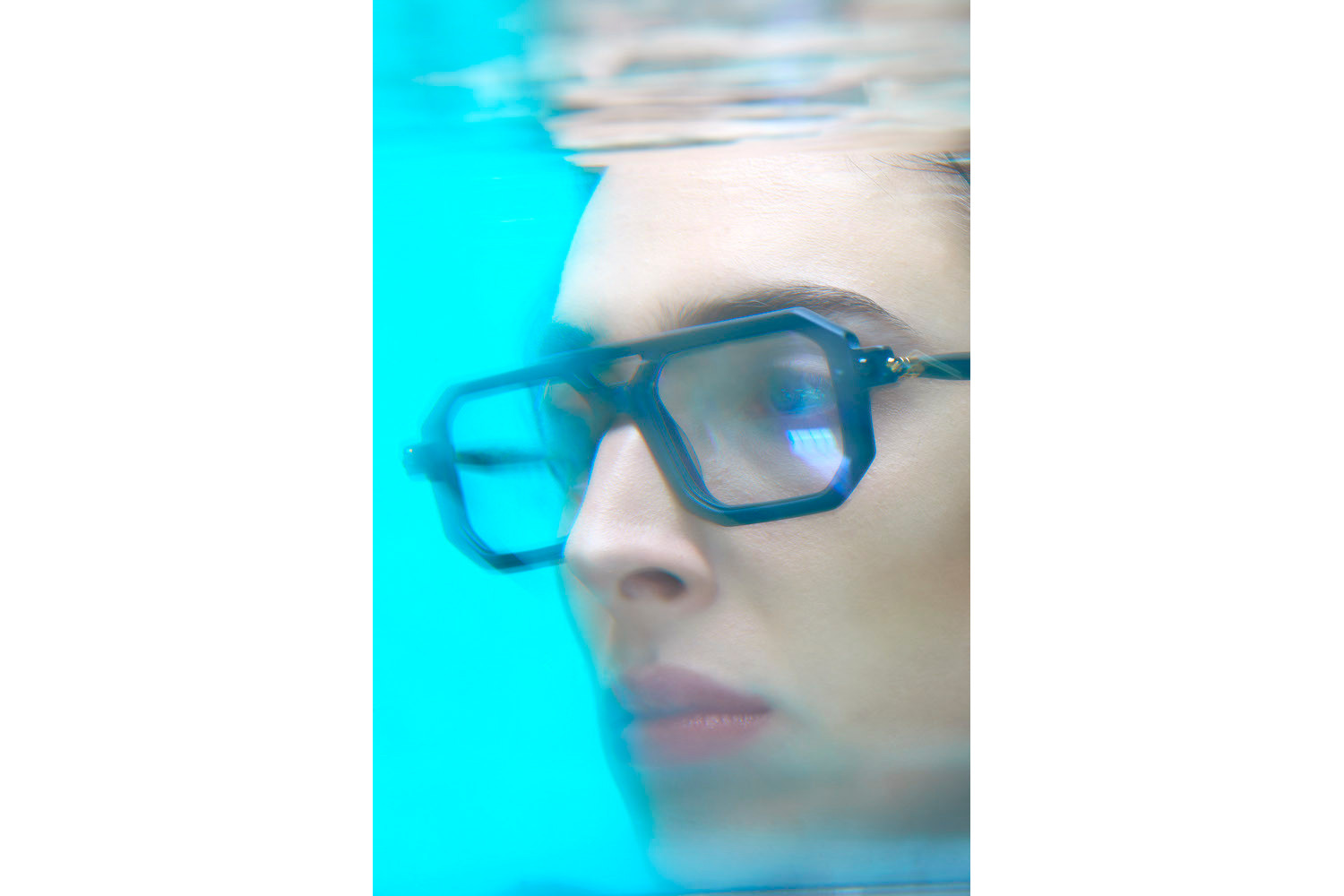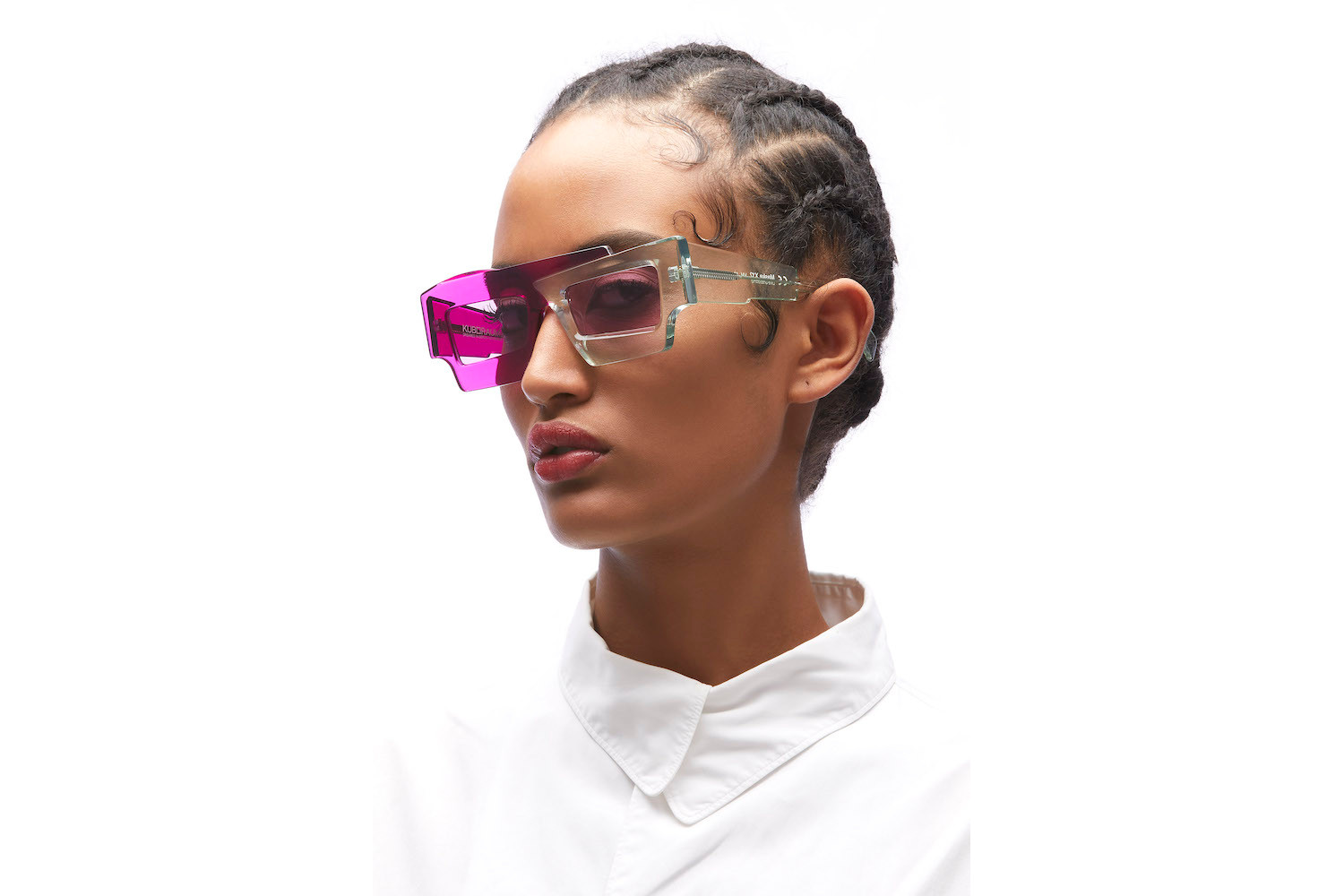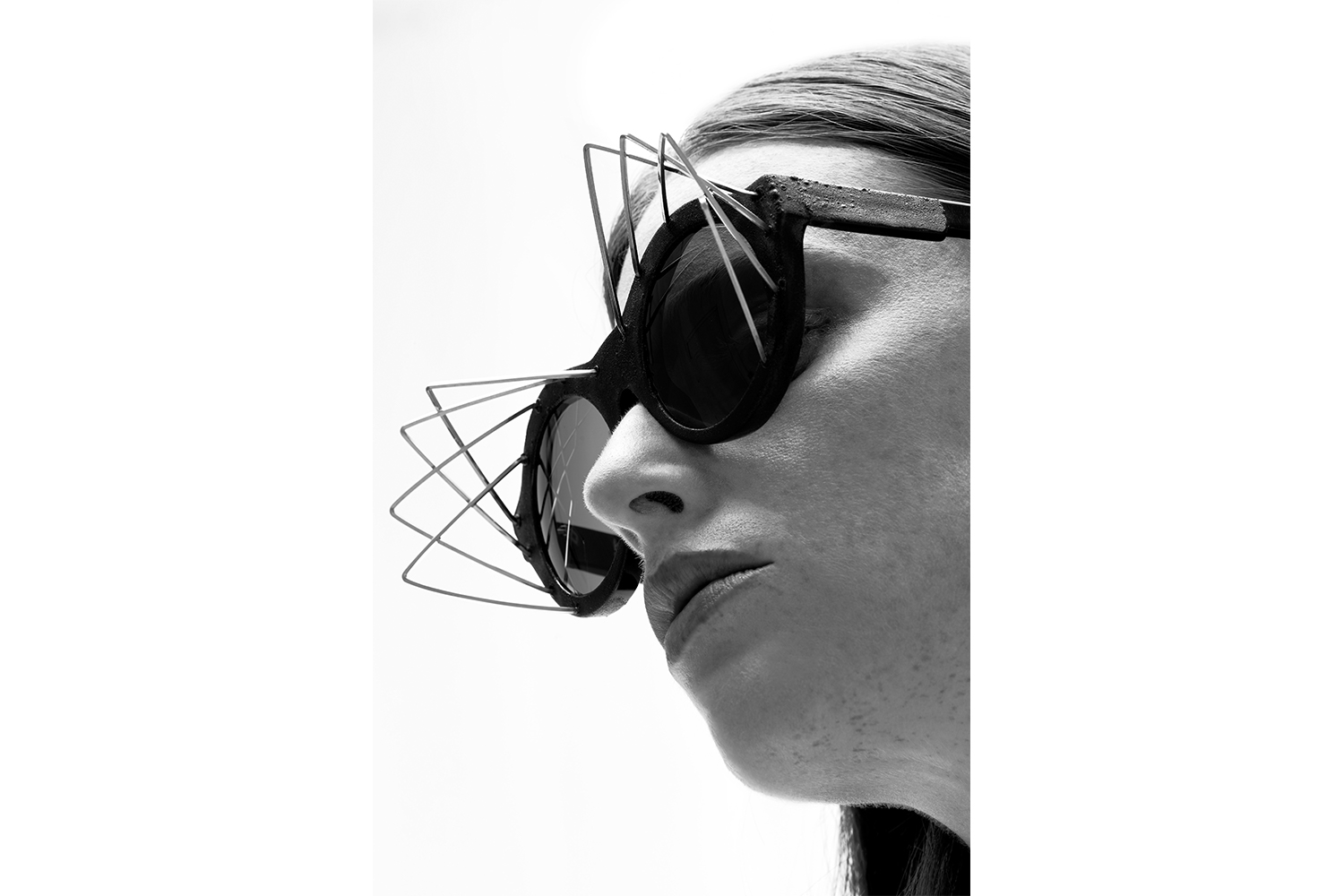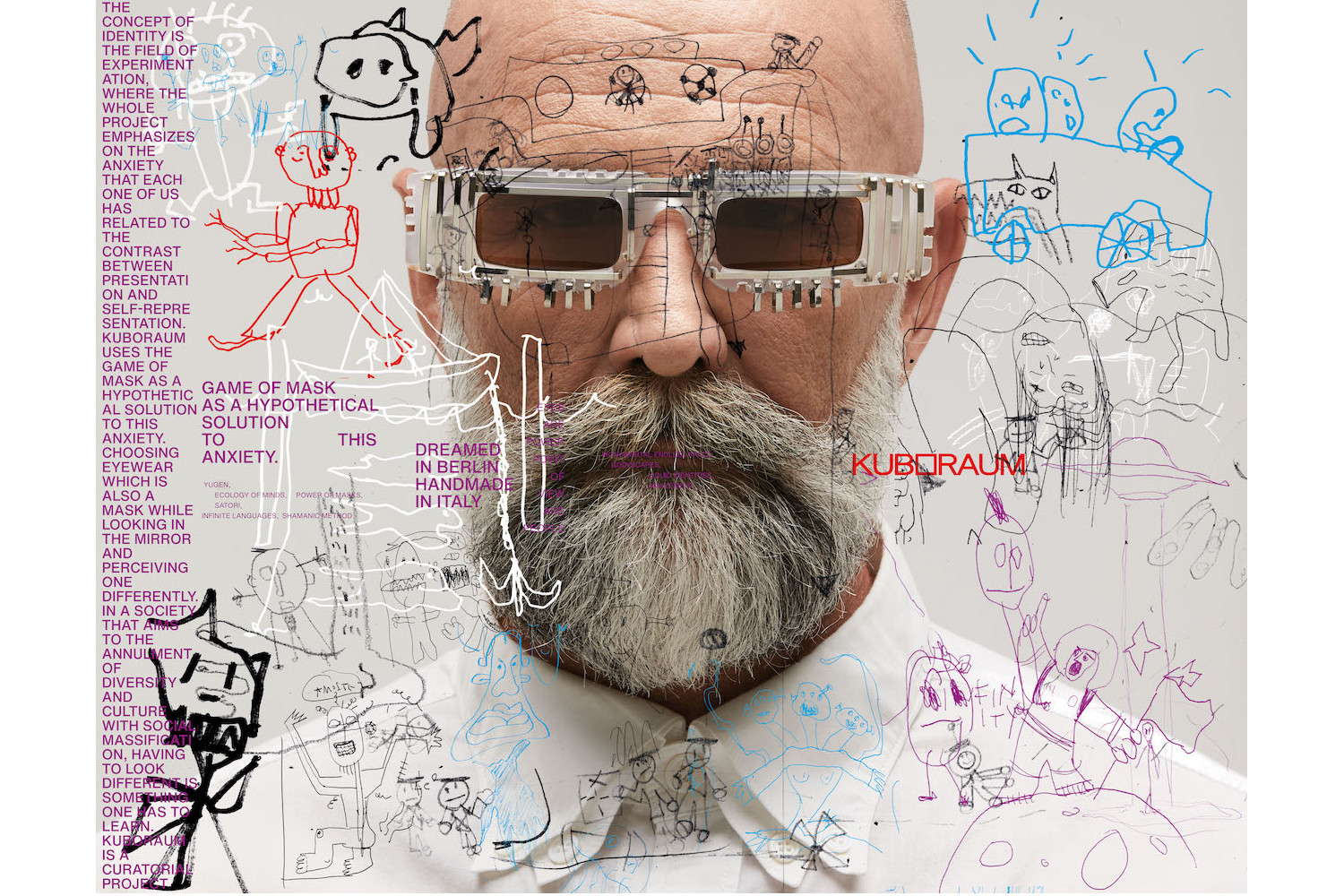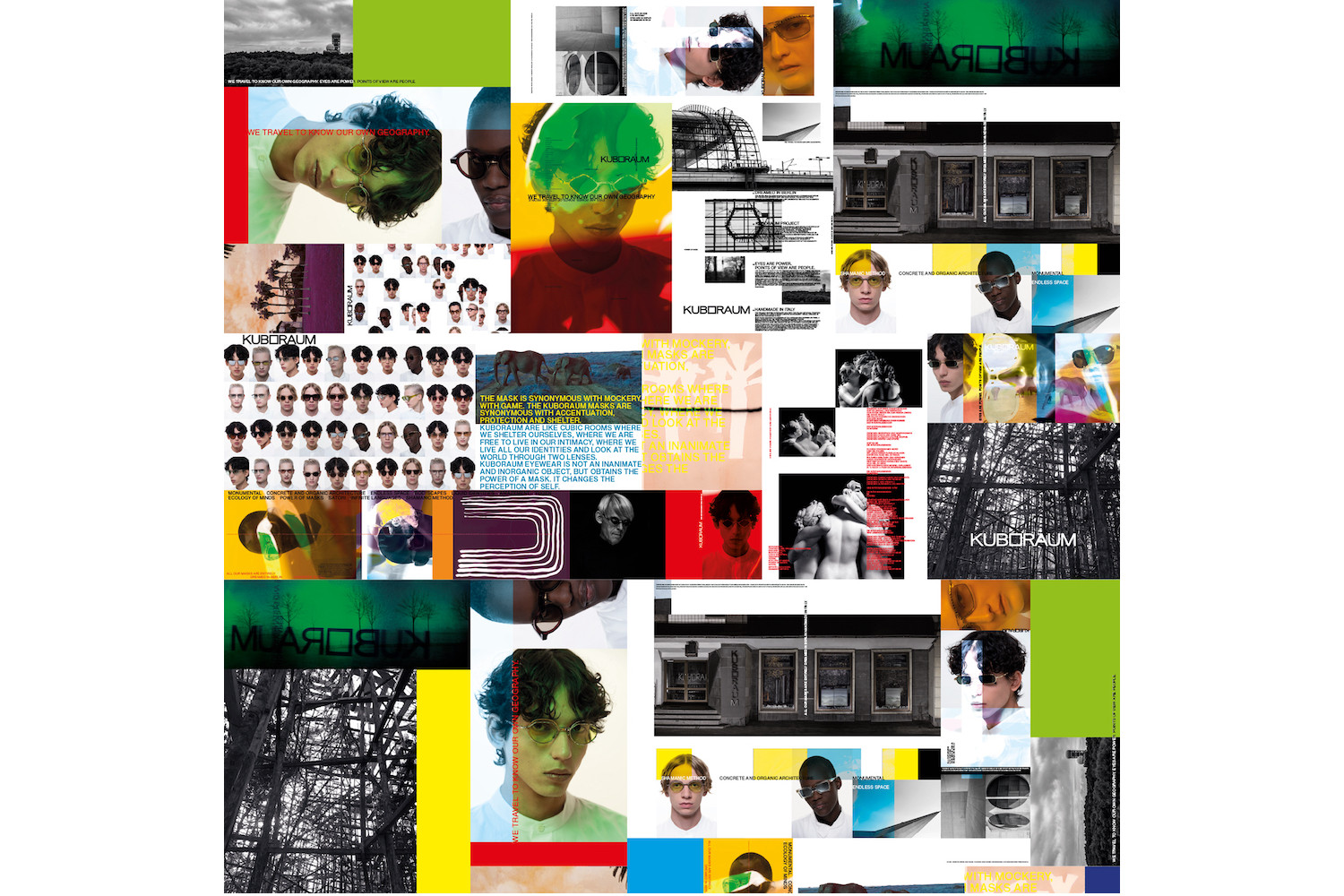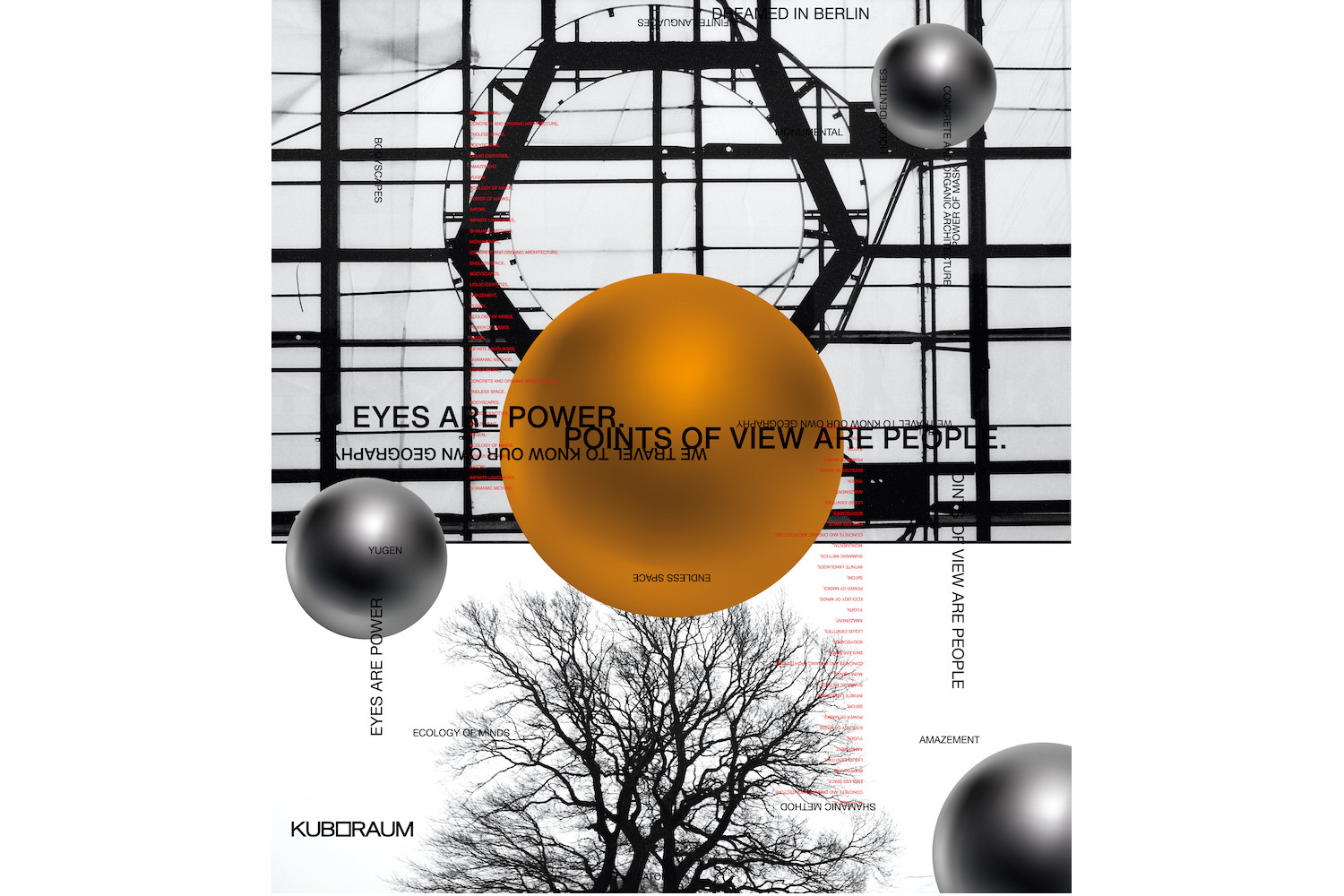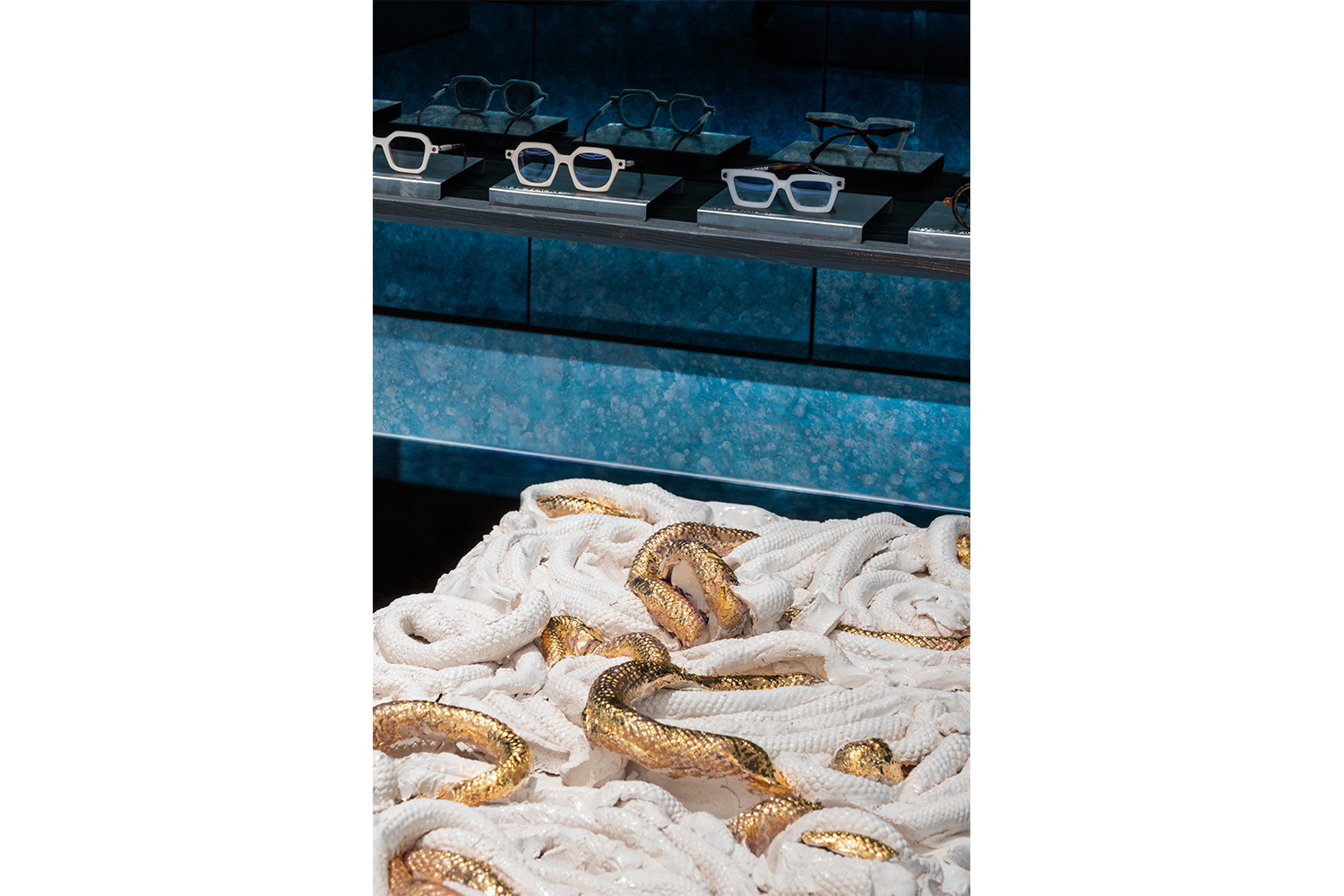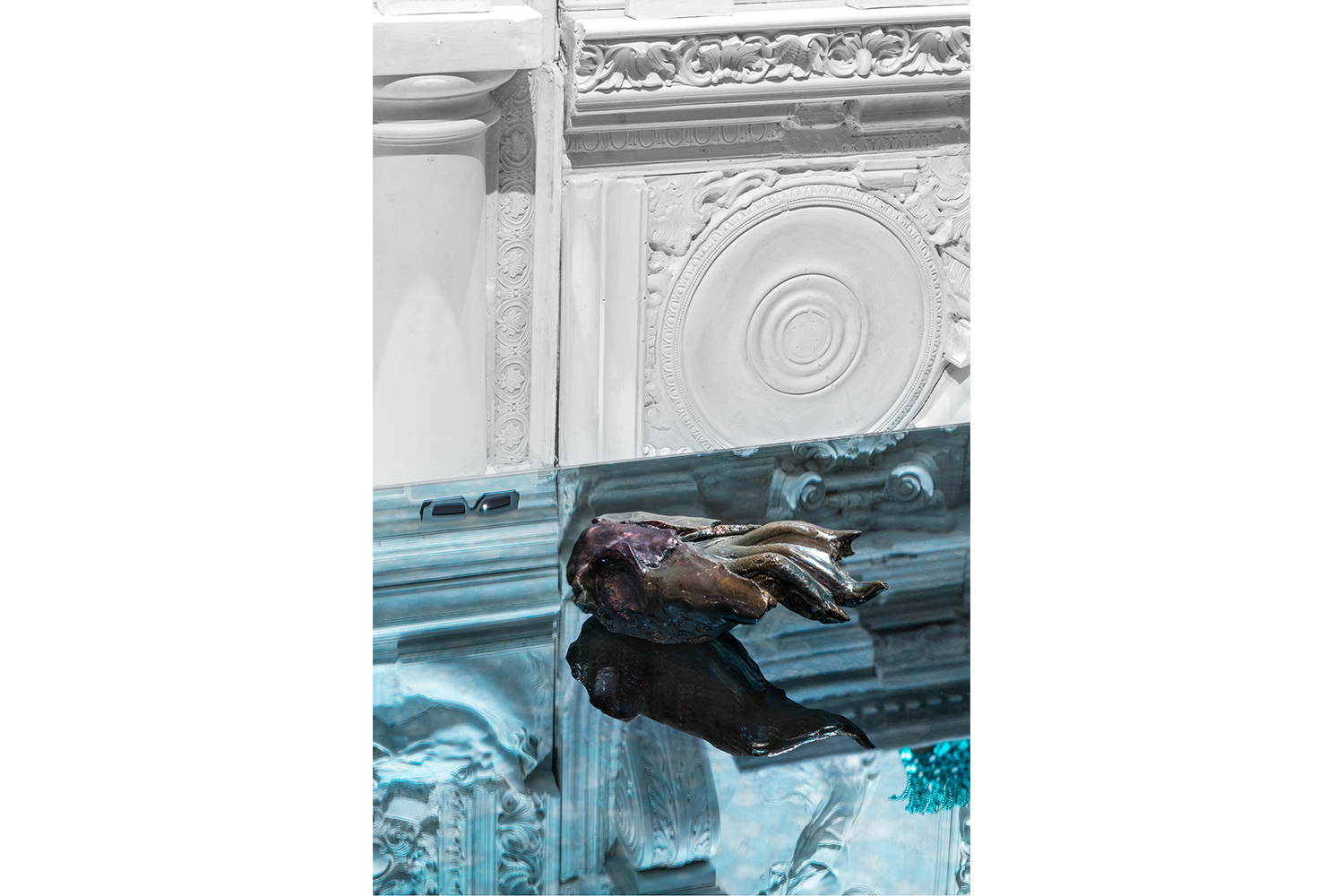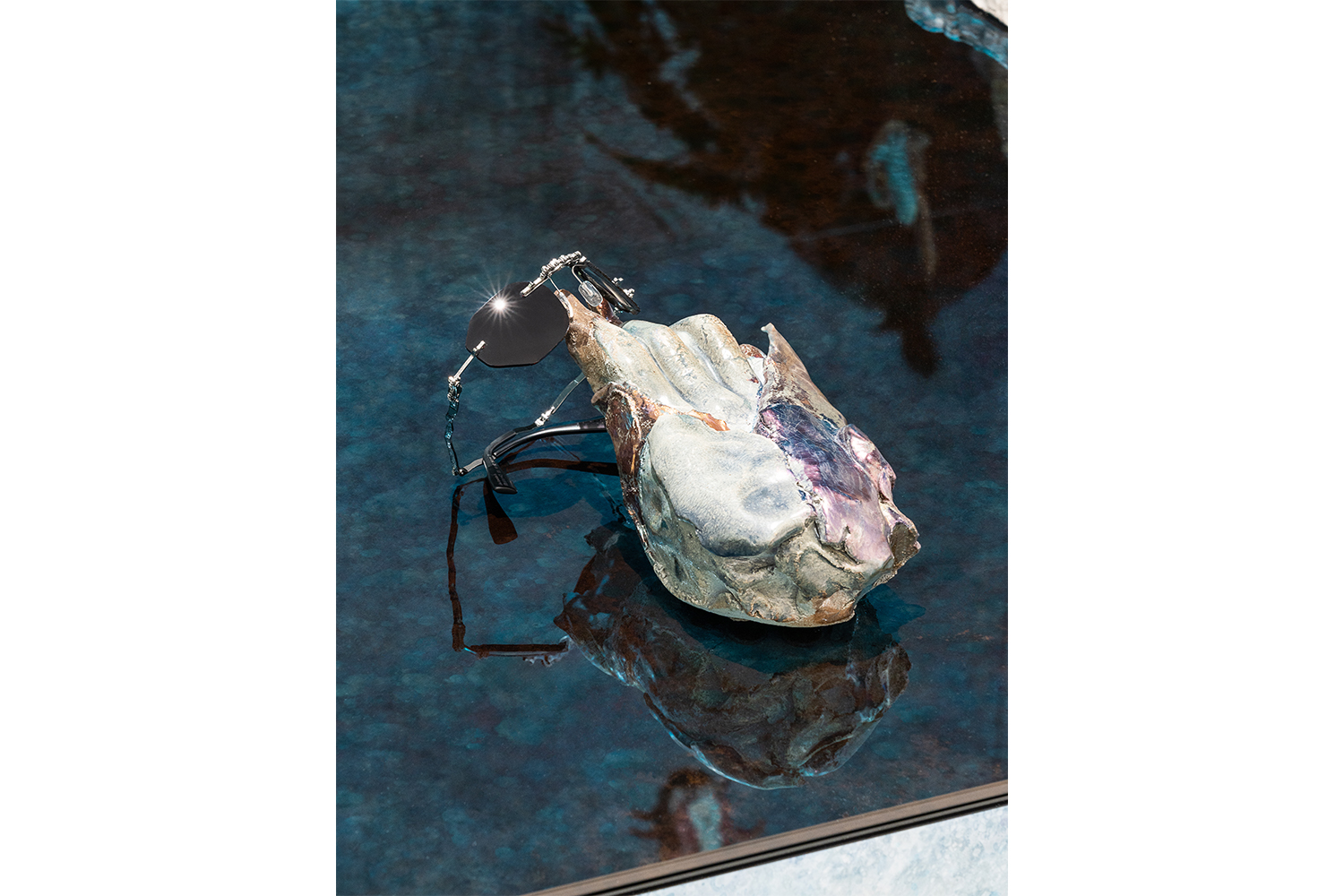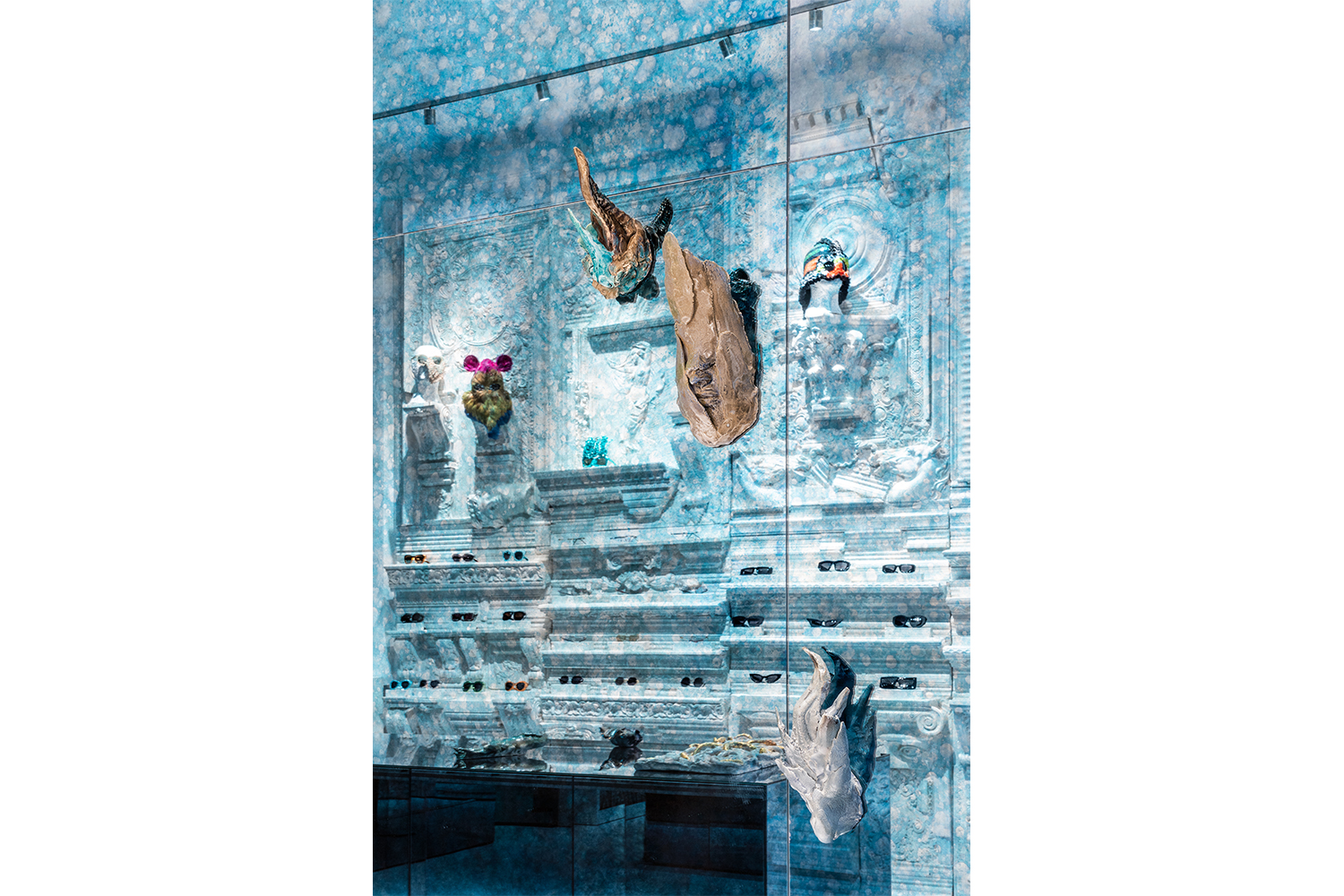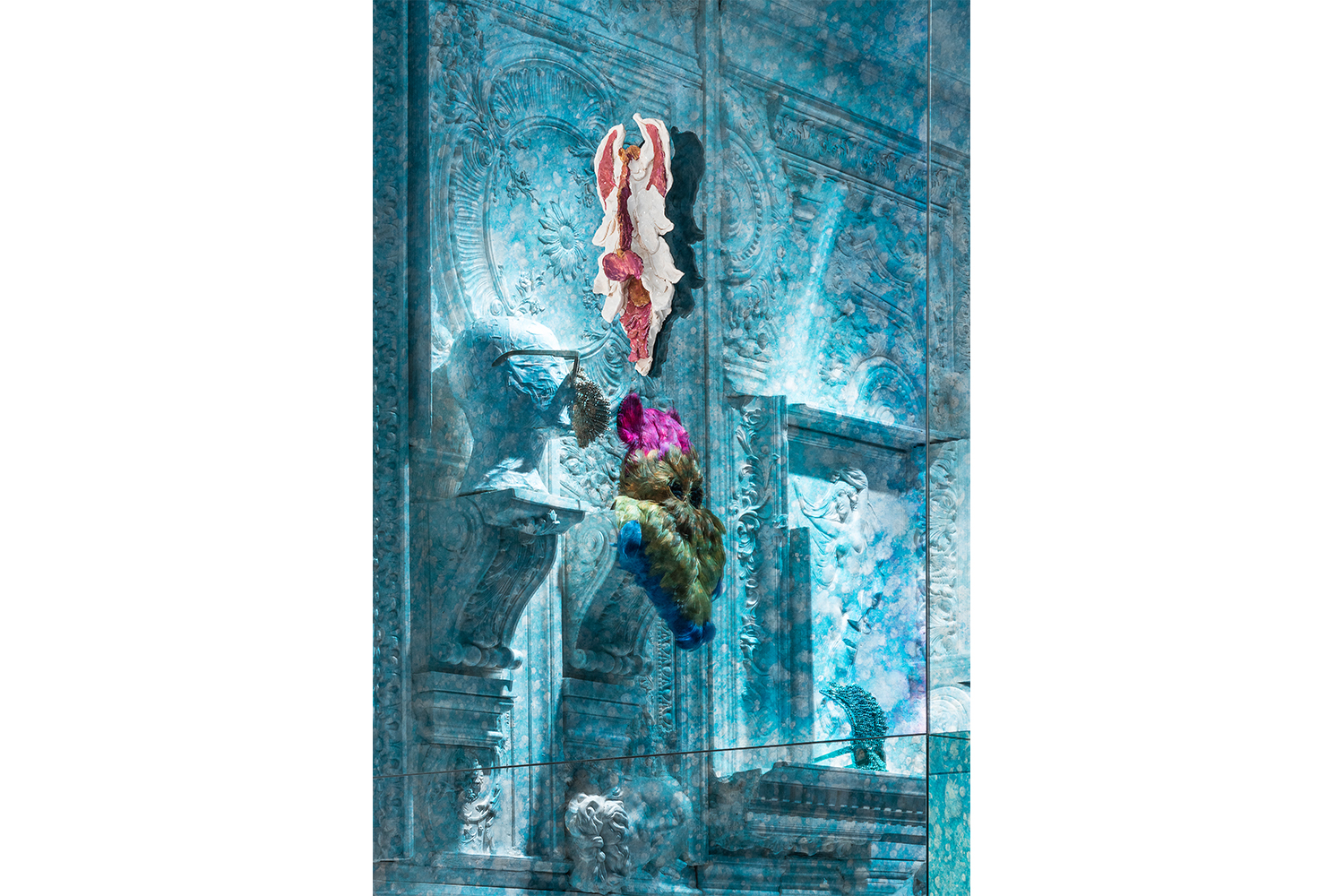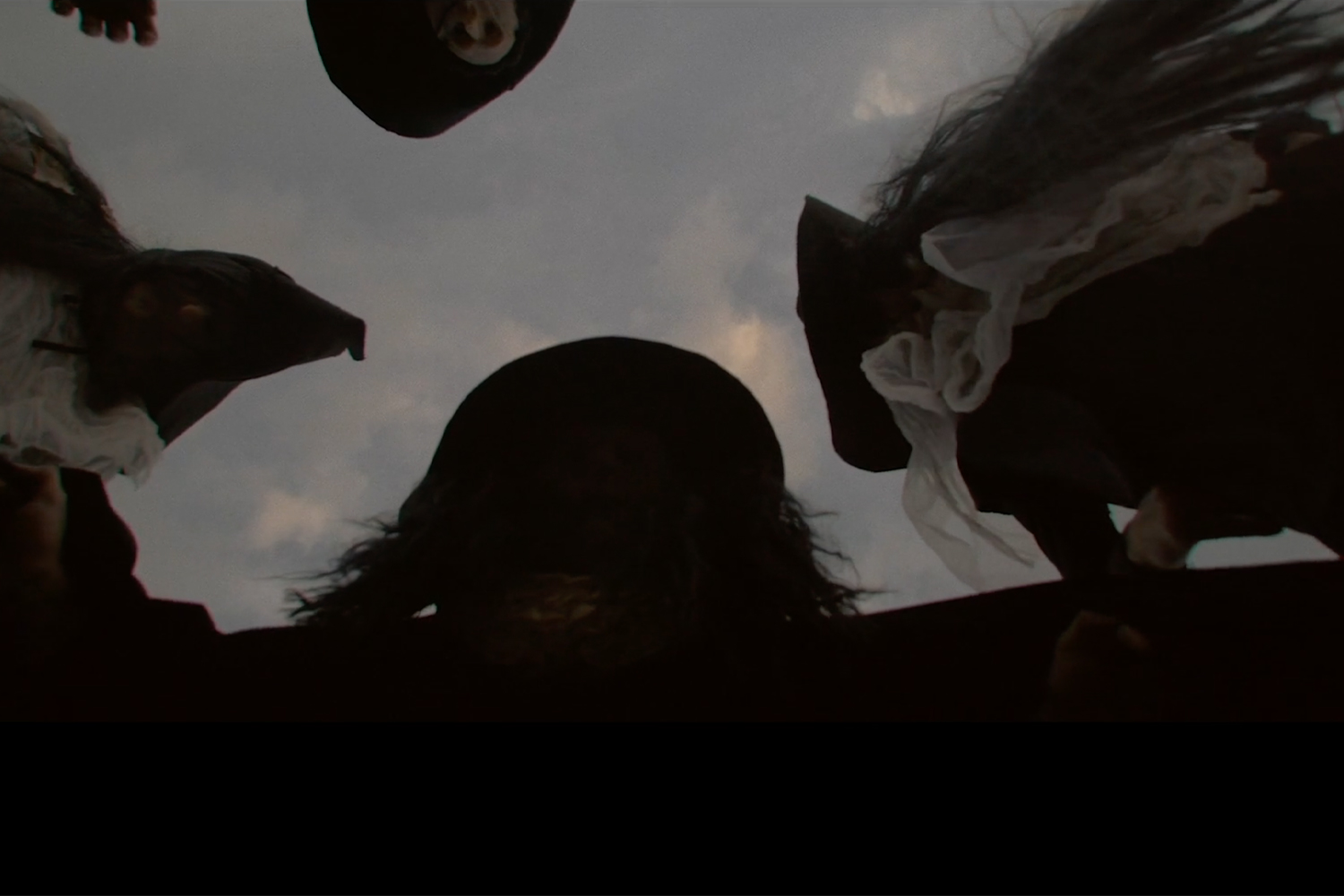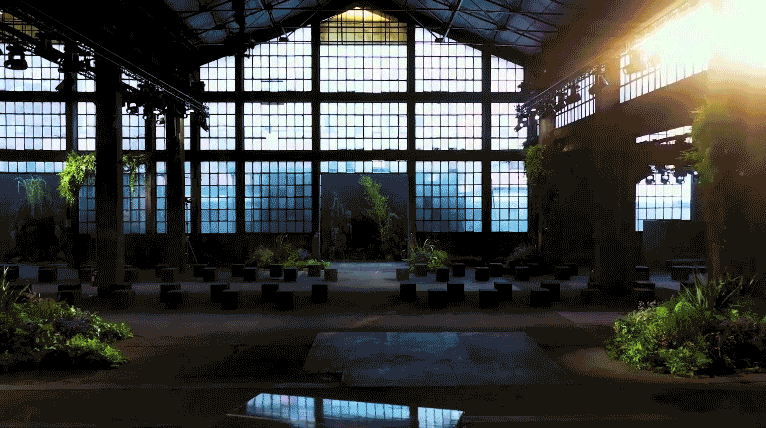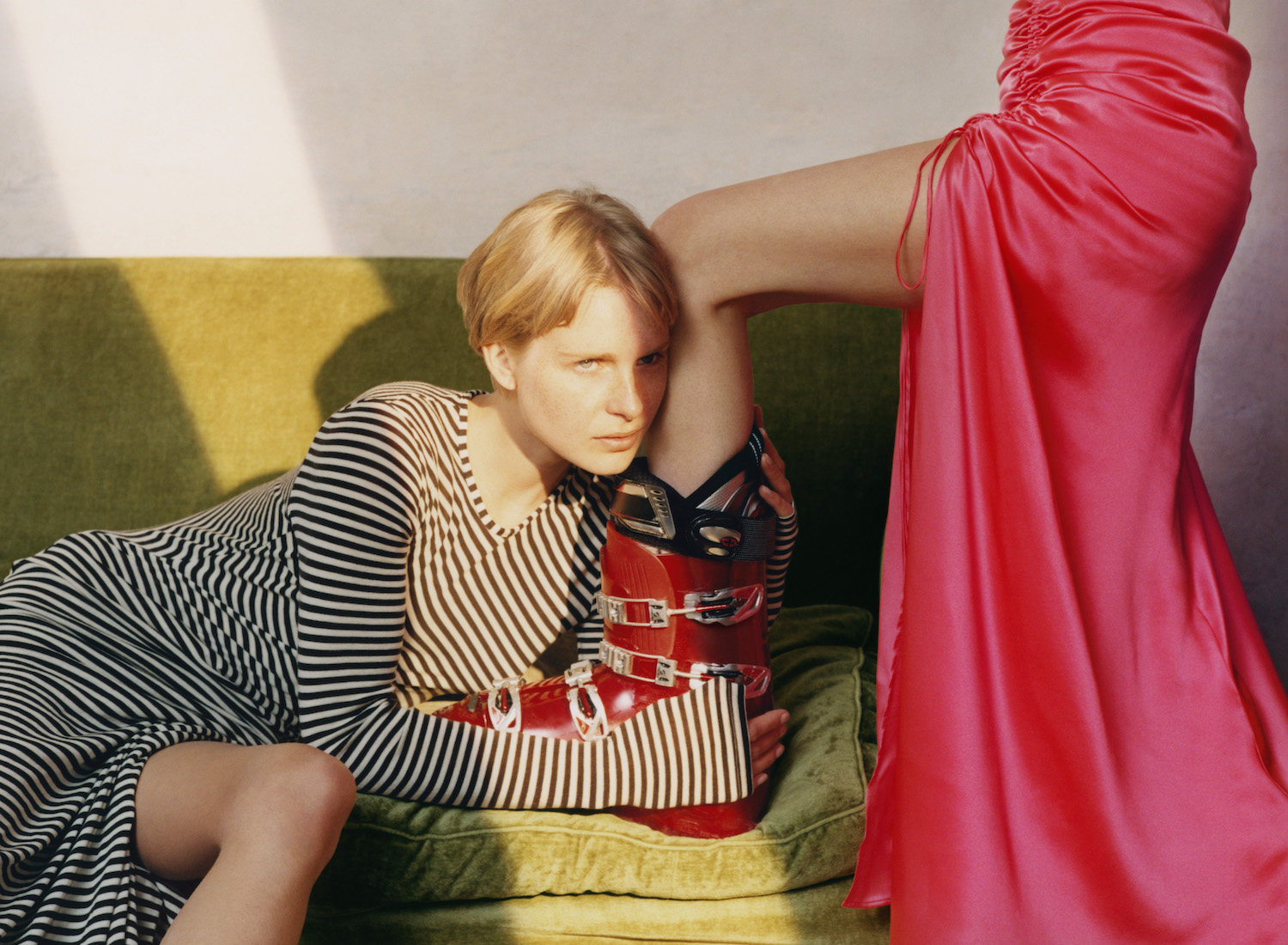People familiar with the project tell me that, ten years ago, you walked into a dimly lit room where “masks” were displayed like sculptures. The difference was that these were — and are still — worn directly by the viewer, from the pedestal to the body.
Kuboraum, an eyewear label with a curatorial approach, founded by Sergio Eusebi and Livio Graziottin, is ten years old. They dress musicians, aliens, intellectuals, and influencers. How is it they are so transversal? They recompose the identities of those who wear their creations. Their strength is a community that never goes back once it chooses Kuboraum.
Gea Politi: You’re not just a cool and sculptural eyewear brand. You’re much more than that. Could we define you as cultural publishers?
Sergio Eusebi and Livio Graziottin: Kuboraum can be defined as a “curatorial project” — a real platform that we use, connecting one-and-many communities with a range of content, one-and-many aesthetics, one-and-many sounds, one-and-many identities. We use eyewear as a medium through which we connect, communicate, and share. The definition of “cultural publishers” can indeed describe this process: each creation is, in a sense, a carrier of this message. It spreads this web that connects to our landscape and our community, to our shared values and aesthetics that embrace diversity, authenticity, and the need for free expression of one’s multiple individuality.
GP: Your strong relationship with music is one of the many aspects you curate. For example, you follow and dress some musicians like Caterina Barbieri on her tours. What is your most ambitious music project?
SE, LG: “And those who were seen dancing were thought to be insane by those who could not hear the music.” This quote by Nietzsche sums up what we do in terms of music and collaboration.
Music is one of the highest expressions of humankind — a universal language through which we can observe the arrival of new aesthetics and social currents. The link between what we do and music is inseparable, and the latter is often the center of our research.
Our journey began ten years ago, and since then we have been considered crazy, as many people did not understand our mission. We were considered as such also by people in the music industry. Since all of our projects related to music, we placed music at the center and never at the service of something else. Precisely for this reason, our choices have never been predictable; always we’ve tried to bring something new and unexpected to the public, something that could stimulate a new dialogue, without being bound to trends or the logic of the market.
Since the music aspect is an integral part of our narrative, it is crucial for us to curate this aspect ourselves and to do so in a genuine and authentic manner. At the same time, we are happy to see how every day other brands are trying to embark on the same kind of journey as us — relying on external curators, able to share their image through collaborations with sophisticated artists making music that is not purely commercial.
There have been many projects over the last ten years, but perhaps the most ambitious one is the one we are preparing this year for the tenth anniversary of Kuboraum: a series of events and projects throughout the year called “10 YEARS OF TRAVELING,” in which we will share our entire narrative of music, art, and design.
Having the opportunity to help artists such as Caterina Barbieri express their artistic vision through our products is something that gratifies us greatly and of which we are deeply proud.
GP: In June 2021, you launched the Digital Sound Residency, inviting contemporary musicians to interpret Kuboraum’s aesthetic through their music. What was it like as an experience?
SE, LG: While we are usually the ones who translate the sounds of the artists who inspire us into our work, through the Digital Sound Residency the contrary happens: you can listen to these artists’ interpretation and vision of Kuboraum’s sound identity, and this is something really exciting for us. Above all, we are happy to notice how difficult it is to specify the musical genre of every single piece that has come to us and that we have shared so far, which also confirms our nature.
The next Digital Sound Residency will feature Manchester duo Space Afrika as guests, followed by an exclusive collaboration between Zola Jesus and Shapednoise.
GP: How has the “perception” of Kuboraum changed over the past two years?
SE, LG: The past two years have been very intense. However, beyond everything that happened, these were important years for our brand. At the moment, we are not able to answer this question, as we still feel inside these two years and we are not able to distance ourselves from them to the point of saying what is the perception of Kuboraum from the outside. On the other hand, from the inside we can say that Kuboraum today is more conscious, aware, and maybe stronger. We have never complained. Rather, we have worked and organized ourselves in looking for solutions for which, in a certain sense, we were already prepared, having founded the bases of our project on themes that are today, more than ever before, at the center of reflection. Ethics, authenticity, diversity, and sustainability are the cornerstones of our project and our narrative. Through design, planning, high craftsmanship, quality materials, Made in Italy as a conditio sine qua non, and generosity in content we always try to make a difference at any cost and without ever sparing ourselves.
GP: Beware of calling them “glasses”: they are masks. How did you come to the decision to make “masks”?
SE, LG: The idea of working on the concept of the mask came from a deep desire for something protective and tactile to place on our faces, but at the same time accentuating it: something to play within our multiple identities. Instead of creating devices that protect from the sun, we thought of devices for being: the game of the mask as a hypothetical solution to the anxiety that each of us has, mainly about the contrast between presentation and self-representation.
A pair of glasses is a frame for all our moods; wearing it on our face is the first prosthesis ever to describe the opinion we have of ourselves. A goggle-mask changes the perception of the person in the relationship with themselves, then in the relationship with others and with the device itself, which is no longer just an inanimate and inorganic object but acquires a sort of power, or sex appeal. The person who agrees to wear the goggle-mask comes into play and agrees to give freedom to their liquid identity. We become free to highlight ourselves.
GP: How important is social media to you?
SE, LG: We’re not a social brand. We honestly don’t think we’re even using social media in the right way, or as they should be used in order to do business. But that’s exactly the point: doing business with social is not what we are interested in in the first place. In fact, the use we make of it has a completely different purpose, that is, to describe, to inform, to connect those who follow us with our visual narrative. Through social media we try to create bridges, links between those who follow us and a certain type of aesthetic or sound. We offer points of view.
For example, Facebook has bored us. In fact, we don’t use it anymore. Instagram we are still using and, although we are not as excited as we used to be, we still don’t find a valid communication alternative. Let’s say that TikTok hasn’t sparked our interest. We don’t think it’s for us, or at least we haven’t yet found a reason that triggers the challenge.
GP: What are your future plans?
SE, LG: On April 28 during “10 YEARS OF TRAVELING” in via Durini at Casa Flash Art, we will inaugurate the Flagship Store Kuboraum & Innerraum in Milan, just a few steps from there, in via Bigli. A box of mirrors, plaster, ceramics, glass, and light.
Two rooms: the first one hosts Kuboraum in which a patchwork wall of plaster casts, a tribute by Livio to his fellow countryman Canova, the two-hundredth anniversary of whose death will be celebrated in 2022, dominates in front of a blue ocean of antique mirrors from which float glazed ceramics made in collaboration with the artist Emiliano Maggi, who has produced them one by one, these ceramic figures specifically for the Milan space.
The second room hosting Innerraum is a sci-fi style light box with a bookcase entirely made of glass, realized by Glass Italia and designed in collaboration with the architect Andrea Eusebi.
Given the strong exhibition-oriented soul of the space, which offers an experience beyond the retail concept, we decided to entrust the lighting design to Viabizzuno.

